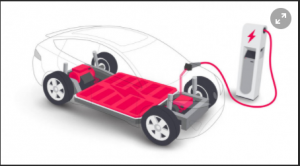Sales of electric and hybrid vehicles are surging in major markets including China, Europe and North America, and reached 3 million vehicles in 2020, 4.6% of total sales. In Europe, their market share reached 10%. According to the projections of the International Energy Agency, their global market share could reach between 10.4% and 19% in 2025.
A number of countries have already announced plans to phase out sales of combustion engine vehicles in within the next 10-20 years, a trend given further impetus by the agreement at COP26 of some 24 nations and a group of leading car manufacturers to end the sale of fossil fuel-powered vehicles by 2040
Until now, consumers have been unable to access reliable information on how well vehicle batteries will perform over time, casting doubts on the sustainability of their investment. This could change thanks to a proposal for a new legal instrument to ensure minimum durability of batteries fitted in full electric and plug-in hybrid cars, endorsed by the World Forum for Harmonization of Vehicle Regulations (WP.29), hosted by UNECE. This marks the first international effort, supported by Canada, China, Japan, Republic of Korea, the United Kingdom of Great Britain and Northern Ireland, the United States of America and the European Union to regulate the issue of battery degradation.
The new provisions, developed as a UN Global Technical Regulation (GTR), will require manufacturers to certify that the batteries fitted in their electric vehicles (EVs) will lose less than 20% of their initial capacity over 5 years or 100,000 kms and less than 30% over 8 years or 160,000 kms.
This would prevent the use of low-quality batteries, ensuring that only durable batteries are installed in EVs. This is crucial to increase consumer trust, and to improve the environmental performance of EVs beyond their low emissions output. Making sure each battery lasts longer would help to ease the pressure on in-demand critical raw materials needed for their production, and reduce waste from used batteries.
André Rijnders, Chair of the Working Party on Pollution and Energy (GRPE) which developed this proposal, said: “Under the proposed regulation, accurate information about the health and remaining capacity of the battery will be made freely available to the vehicle owner. This will provide valuable information for used/second-hand EV transactions and other changes of vehicle owner.”
Each vehicle will have to report its own battery health status to the relevant national or regional authorities, via over-the-air data transmission or other means to be determined depending on local conditions.
The agreed proposal will be put to a vote at the WP.29 session of March 2022. Countries voting in favour of the new legal text will need to transpose it into their national/regional legislation with a dedicated timeline of entry into force of the new regime, which could come as early as 2023.
Note to editors
About the World Forum for Harmonization of Vehicle Regulations
The World Forum for Harmonization of Vehicle Regulations, hosted by UNECE, is a unique global platform responsible for the regulatory frameworks regarding the safety and environmental performance of vehicles, their subsystems and parts.
The World Forum manages three Global Agreements on vehicles: 1958 Agreement (UN Regulations); 1998 Agreement (UN Global Technical Regulations); and 1997 Agreement (UN Rules on Periodic Technical Inspections). Any country that is member of the United Nations may participate in the activities of the World Forum and accede to the Agreements.
United Nations Global Technical Regulations (UN GTRs) contain globally harmonized performance-related requirements and test procedures. They provide a predictable regulatory framework for the global automotive industry and consumer associations. They do not contain administrative provisions for type approvals and their mutual recognition.
The Working Party on Pollution and Energy (GRPE) is one of the six subsidiary bodies of the World Forum. Its work focuses on defining exhaust, energy efficiency and power measurement procedures for all modes of inland transport in order to limit environmental damage.


